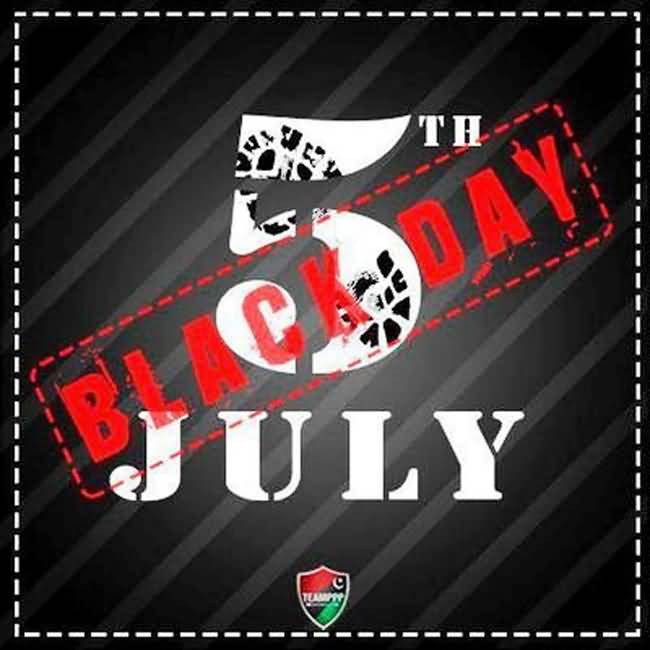
Before the coup, unrest and political conflict between right-wing Pakistan National Alliance and the PPP government was instigated under a well-hatched conspiracy.
Dr. Abdul Razak Shaikh
The 5th July is the Black Day of Pakistan’s history, as on the night of this day in 1977, the military toppled the democratic government of first elected Prime Minister Zulfiqar Ali Bhutto in a coup code-named as ‘Operation Fair Play’. The coup was led by Chief of Army Staff General Zia-ul-Haq.
The coup was preceded by unrest and political conflict between the Pakistan People’s Party government and the right-wing Islamist opposition Pakistan National Alliance, instigated by the conspirators, accusing the government of rigging the 1977 general elections.
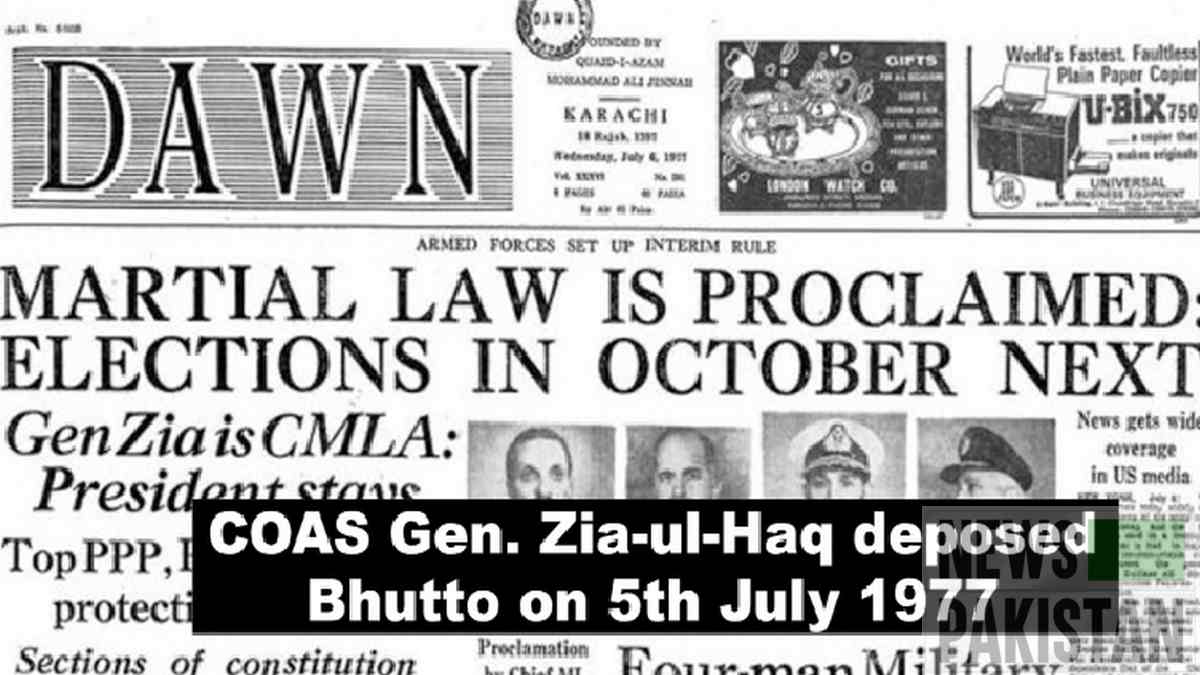 While announcing the coup, Dictator Zia promised “free and fair elections” within 90 days, but these were repeatedly postponed on the excuse of accountability and it was not until 1985 that party-less general elections were held. Zia himself stayed in power for eleven years until his death in a plane crash in 1988.
While announcing the coup, Dictator Zia promised “free and fair elections” within 90 days, but these were repeatedly postponed on the excuse of accountability and it was not until 1985 that party-less general elections were held. Zia himself stayed in power for eleven years until his death in a plane crash in 1988.
Shaheed Zulfiqar Ali Bhutto had served as the 9th Prime Minister of Pakistan from 1973 to 1977, and prior to that as the 4th President of country from 1971 to 1973. He was also the founder of the Pakistan People’s Party (PPP) and served as its Chairman until he was martyred in 1979 through a judicial murder.
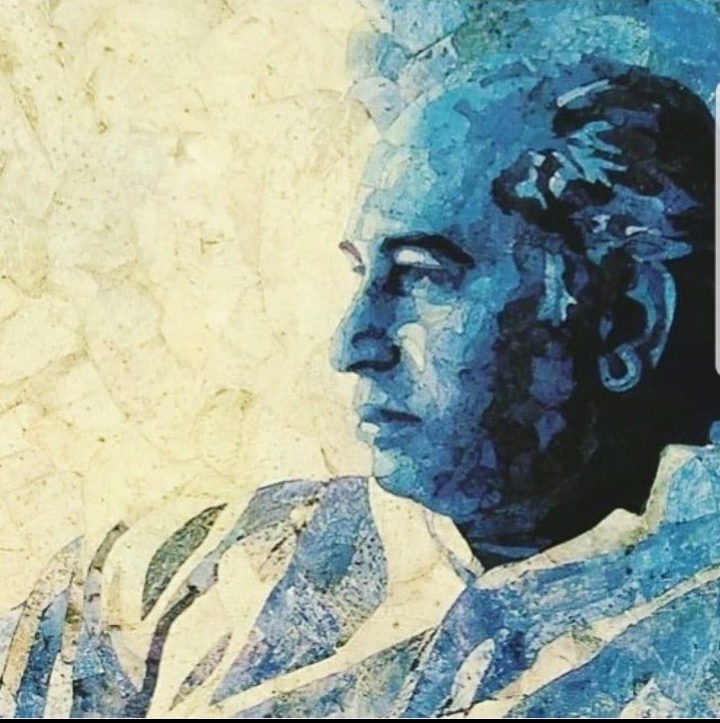
Bhutto was a strong advocate of empowering small farmers. He argued that if farmers were weak and demoralized then Pakistan’s agricultural strength would be fragile, believing that farmers would not feel psychologically safe unless the country achieved self-sufficiency in food.
The last and crucial phase of his political career started in July 1977, after his government was overthrown, and ended in April 1979 when he was convicted in a murder, falsely implicating him, through a highly controversial trial and was hanged by Dictator Zia-ul-Haq.
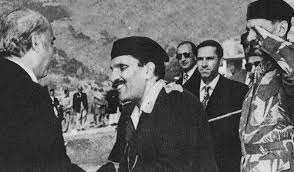 The PPP government had held the general elections on March 7, 1977. The PPP won these elections but was accused by opponents – Pakistan National Alliance, of rigging the elections. On March 14, 1977, the Alliance started a series of nationwide protests. Talks between the Alliance and Bhutto government were held in June 1977 and an agreement was reached, but it could not be implemented.
The PPP government had held the general elections on March 7, 1977. The PPP won these elections but was accused by opponents – Pakistan National Alliance, of rigging the elections. On March 14, 1977, the Alliance started a series of nationwide protests. Talks between the Alliance and Bhutto government were held in June 1977 and an agreement was reached, but it could not be implemented.
At this stage, under a well-hatched conspiracy, Dictator Zia ambushed the democratic government through ‘Operation Fair Play’ plan of the military coup on 5 July 1977. The pretext for the coup was the failure of the ruling PPP and the opposition PNA to reach an agreement regarding fresh elections. The code name ‘Operation Fair Play’ was intended to portray the coup as the benign intervention of an impartial referee to uphold respect for the rules and ensure free and fair elections.
While announcing the coup, Zia promised free and fair elections within 90 days. He arrested Zulfiqar Ali Bhutto and his ministers, as well as other leaders of the PPP. He dissolved the National Assembly of Pakistan and all provincial assemblies, suspended the Constitution and imposed martial law. A four-member Military Council made up of Chief of Army Staff General Zia-ul-Haq as Chief Martial Law Administrator, the Chairman of the Joint Chiefs of Staff Committee, and the Chiefs of the Navy and the Air force, took over government operations in the country. Bhutto was persecuted on the charges of murder of political opponents.
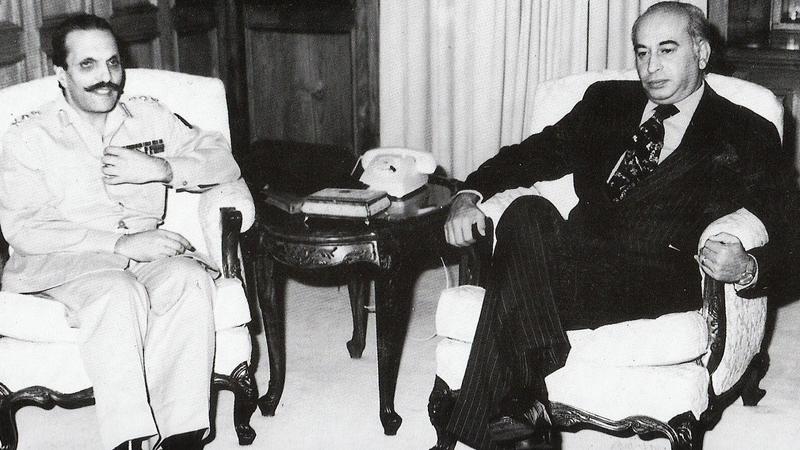 The judiciary also played a shameful role, as the then Chief Justice of Pakistan Anwar ul Huq legitimatized the military coup after under the Doctrine of Necessity orders.
The judiciary also played a shameful role, as the then Chief Justice of Pakistan Anwar ul Huq legitimatized the military coup after under the Doctrine of Necessity orders.
On the other hand, the Lahore High court directly convicted Bhutto on the charges of conspiracy to murder Nawab Muhammad Ahmed Khan Kasuri, and death sentence was announced by the Chief Justice Molvi Mushtaque Ahmed. This case was not tried in the Session Court as required in law.
On 24 October 1977, the Supreme Court began the appeal trial and upheld the death punishment given by Lahore High Court. Despite appeals of clemency sent by many nations, the military dictator hanged the great leader on 4th April 1979. This was another Black day for the Country and Lovers of Zulfiqar Ali Bhutto.
During the Zia regime, hundreds of the workers of PPP were arrested and convicted by Military Courts. Human rights violations were done by punishing the PPP workers with lashes.
In 1985, Dictator General Zia announced the general election on a non-party basis, with candidates standing as individuals rather than as representatives of a political party. The PPP did not take a part in non –party elections and later Muhammad Khan Junejo from Sindh was made the Prime minister of Pakistan. In 1988 General Zia dismissed the Junejo Government on charges of Corruption. In August 1988, Zia died when his aircraft crashed shortly after take-off from Bahawalpur Airport.
Pakistani investigation was unable to ascertain the cause of the crash. Bhutto family attributed it to an act of God. After his death, the Supreme Court announced that the election should take place on party basis, rather than the non-party basis that Zia had desired.
The military rule ended only with the death of Gen. Zia ul Huq and some other key military administrators of his regime. Following his death, the country returned to democracy and the PPP again came in power in 1988.
In 1999, Chief of Army Staff General Pervaiz Musharraf came into power by overthrowing Prime Minister Nawaz Shareef, and occupied power for nine years. The history of military takeover in Pakistan is widely unacceptable in the democratic system of the country but even today they are the concealed partners of civilian governments.
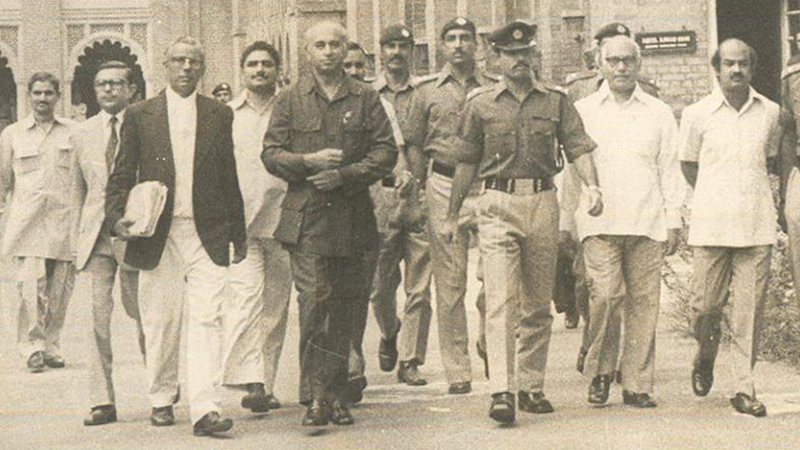 Zulfiqar Ali Bhutto faced tough times with courage and conviction. He never budged under pressure from an oppressive military ruler. For his supporters, Zulfiqar Ali Bhutto symbolizes the best in politics, struggle against poverty and inequality as well as sacrifices for democracy and civilian supremacy.
Zulfiqar Ali Bhutto faced tough times with courage and conviction. He never budged under pressure from an oppressive military ruler. For his supporters, Zulfiqar Ali Bhutto symbolizes the best in politics, struggle against poverty and inequality as well as sacrifices for democracy and civilian supremacy.
History will never forget Zulfiqar Ali Bhutto who sacrificed his life for the cause of poor people, democracy and sovereignty of the Country. Shaheed Bhutto remains alive in the hearts of masses. His legacy continued as his daughter Benazir Bhutto was twice elected Prime Minister, and his son-in-law and BB’s husband, Asif Ali Zardari, served as President of Pakistan, and his grandson Bilawal Bhutto is now Foreign Minister of the country.
The nation still remembers Shaheed Zulfiqar Ali Bhutto who was the voice of poor and struggled for sovereignty of country and Muslim cause.
_________________
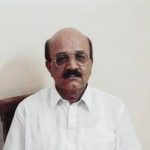 Dr. Abdul Razzak Shaikh, MBBS; MAS (Master in Health Services Management) is has retired from Health Department Govt. of Sindh.
Dr. Abdul Razzak Shaikh, MBBS; MAS (Master in Health Services Management) is has retired from Health Department Govt. of Sindh.